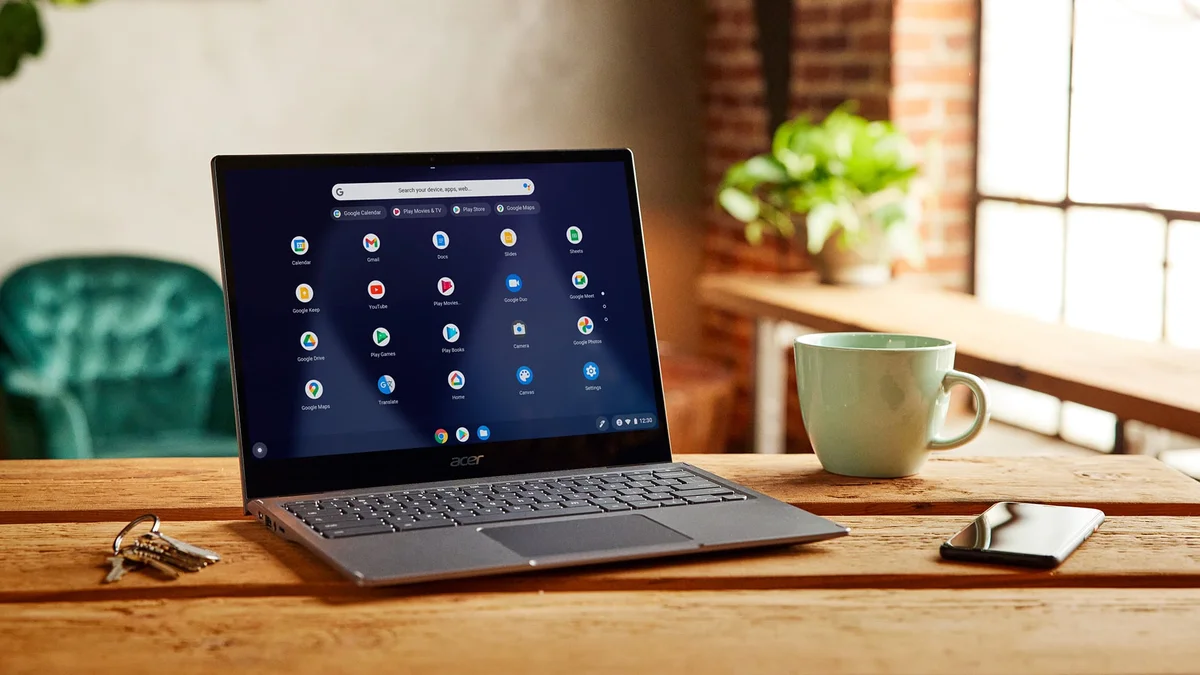Chrome OS will use machine learning for the new experience
An adaptive charging function is being added to Chrome OS, which will benefit Chromebook users by allowing them to use their devices for longer periods between charges. Even though Google has not yet publicly announced the feature, it has been discovered in development thanks to a recently uploaded code change notification by the Chrome OS development team.
Adaptive Charging was initially created by Google for use with their Pixel smartphones. With the latest release of Android 12, the experience for Pixel phone owners has been improved and honed even more to meet their needs. Other Android phone makers have also made comparable charging optimizations available for their devices as well.
According to 9to5Google, Google has identified Adaptive Charging as a new feature in development for Chrome OS, which was first discovered. The feature will be distinct from the Adaptive Charging functionality currently available on Pixel phones, which was first introduced in December 2020. According to the preliminary information available from the code, it will aid in reducing the length of time Chromebooks are used with their batteries at 100 per cent capacity.
If your Pixel phone is plugged in overnight, the Android version of Adaptive Charging is designed to “slow” charge it to extend its battery life the next day.
Chromebooks, on the other hand, have a different set of applications when compared to smartphones. The charging function in Chrome OS will, as a result, make use of on-device machine learning to recognise user patterns and determine the appropriate charging speed.
This will, according to the code, not only allow the Chromebook to postpone the charging process completely but will also keep it in a manner that will have the least influence on the battery’s longevity.
According to the code, Google may also send out notification alerts to tell consumers when the Adaptive Charging function is active on their device. Additionally, an option to deactivate the function may be made available.
The exact date on which Adaptive Charging will be made accessible on Chrome OS will not be known until later. At this time, it is also unclear if the functionality would be confined to new Chromebooks or whether it will be made available to previous models through a software update as well.
If we look at the phone-focused Adaptive Charging function that is now only available on Pixel phones, it is possible that Google would first limit the feature to its Pixelbook line.
Battery ageing is becoming increasingly problematic for consumers as well as manufacturers, who must either have additional batteries on hand or provide customers with trade-in choices for their devices as a result of battery degradation. Consumers and manufacturers are both suffering as a result of the widespread usage of mobile devices and personal computers. As a result, software developers, like Google, are attempting to tackle the problem by altering their operating systems to give some level of optimization from their end.
It should be noted that Google is not the only competitor in this competition. Mobile phone manufacturers such as Samsung and OnePlus are also providing comparable optimizations on their devices. While at the same time, Apple’s latest iPhone and MacBook models receive optimised battery charging, which helps them maintain part of their battery life.




